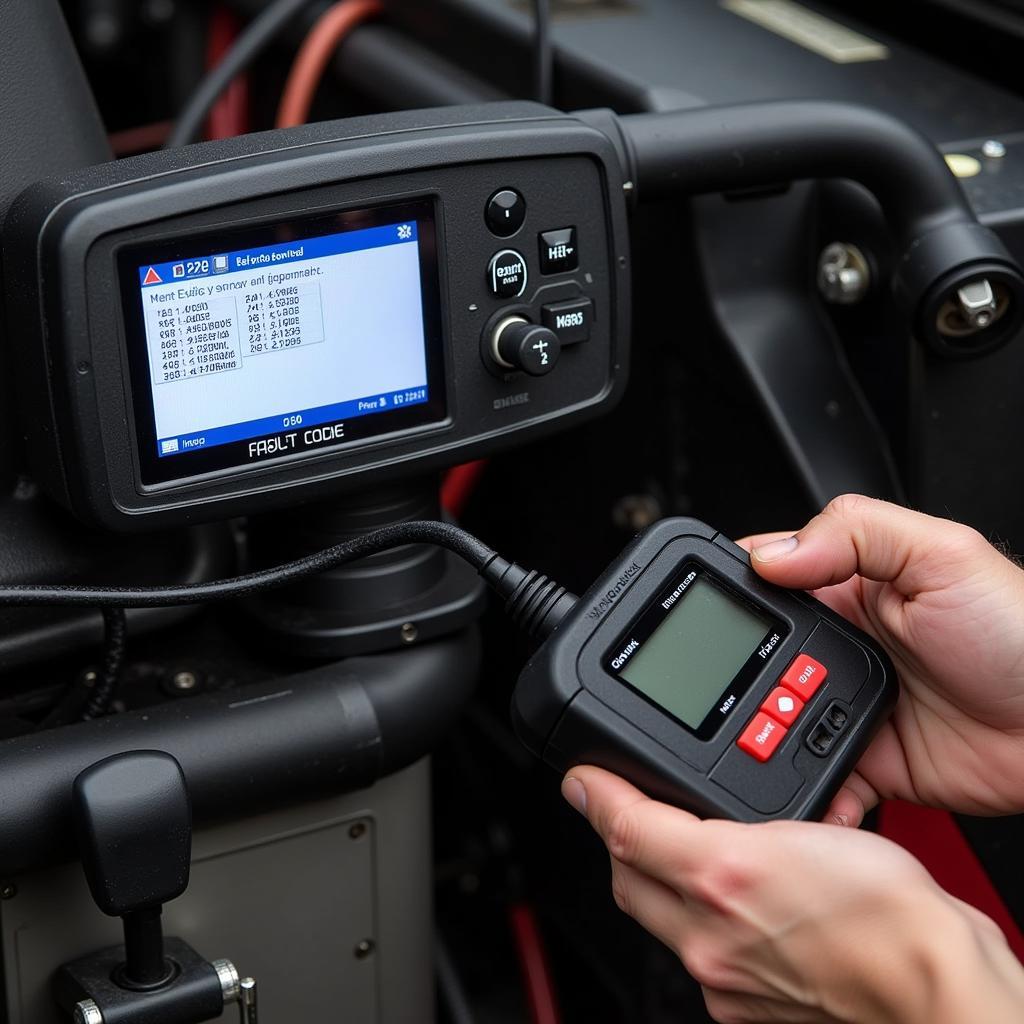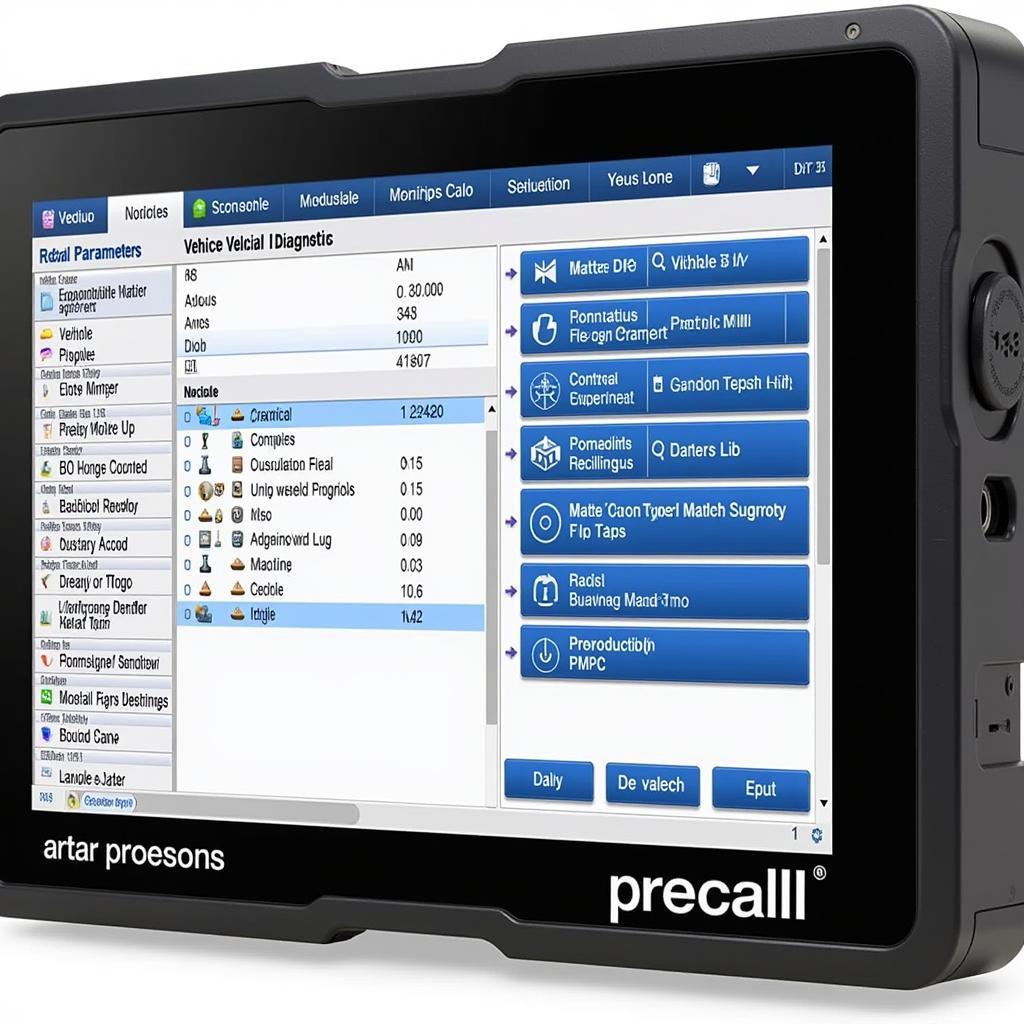Modern vehicles are more technologically advanced than ever before, relying heavily on complex computer systems to manage everything from engine performance to safety features. When issues arise, accurately diagnosing the problem is crucial. This is where Computer Repair Diagnostic Tools come into play. These tools act as a window into your vehicle’s computer system, allowing technicians to read error codes, monitor live data, and pinpoint the root cause of malfunctions.
Understanding the Importance of Diagnostic Tools
Gone are the days of relying solely on mechanical expertise and intuition to diagnose car problems. Today’s vehicles demand a more sophisticated approach. Computer internal diagnostic tools offer a plethora of benefits for both car owners and repair shops:
- Accurate Diagnosis: These tools provide precise error codes and real-time data, eliminating guesswork and unnecessary repairs.
- Time Savings: Diagnostic tools drastically reduce the time spent troubleshooting, leading to faster repairs.
- Cost-Effectiveness: By identifying the exact problem, these tools prevent the replacement of unnecessary parts, saving you money.
- Enhanced Safety: Properly diagnosing and repairing electronic systems ensures the safety and reliability of your vehicle.
Types of Computer Repair Diagnostic Tools
A range of diagnostic tools are available, each offering different levels of functionality and complexity. Some common types include:
- Code Readers: Basic tools that read and display diagnostic trouble codes (DTCs) stored in your vehicle’s computer.
- Scan Tools: More advanced than code readers, scan tools can read and clear codes, display live data streams from various sensors, and perform some actuation tests.
- Professional Diagnostic Scanners: Used by dealerships and professional repair shops, these comprehensive tools offer advanced features like module programming, bi-directional control, and access to manufacturer-specific data.
[Image-1|diagnostic-tools-comparison|Car Diagnostic Tools Comparison|A table comparing different types of car diagnostic tools: Code Reader, Scan Tool, Professional Scanner, highlighting features like reading/clearing codes, displaying live data, performing tests, and their suitability for car owners and professional mechanics.]
Choosing the Right Tool for Your Needs
Selecting the appropriate diagnostic tool depends on your technical expertise and intended use.
- For Car Owners: A basic code reader or an entry-level scan tool can be a worthwhile investment for DIY enthusiasts. These tools allow you to understand basic error codes and perform simple diagnostics.
- For Repair Shops: Professional-grade diagnostic scanners are indispensable for mechanics. They provide the comprehensive functionality required to diagnose and repair complex vehicle systems efficiently.
[Image-2|professional-diagnostic-scanner|Mechanic Using a Professional Diagnostic Scanner| A mechanic in a repair shop using a professional diagnostic scanner to diagnose a car’s electronic system. The image highlights the tool’s interface displaying real-time data and diagnostic codes.]
Key Features to Consider
When choosing a diagnostic tool, consider these essential features:
- Vehicle Compatibility: Ensure the tool supports your vehicle’s make, model, and year. Some tools offer wider compatibility than others.
- Software Updates: Regular software updates are essential for maintaining compatibility with newer vehicle models and accessing the latest features.
- User Interface: Look for a tool with an intuitive and user-friendly interface, especially if you’re a DIY user.
- Data Logging and Reporting: This feature allows you to record and analyze data over time, which can be helpful for intermittent problems.
- Technical Support and Warranty: Choose a reputable brand that offers reliable technical support and a solid warranty.
Maximizing the Benefits of Diagnostic Tools
Investing in a quality computer repair diagnostic tool is just the first step. To maximize its effectiveness, consider these tips:
- Familiarize Yourself: Take the time to understand the tool’s functions and features. Read the manual or watch tutorial videos.
- Keep Software Updated: Regularly update the tool’s software to ensure compatibility with the latest vehicle models.
- Utilize Online Resources: Numerous online forums and communities offer valuable insights and troubleshooting tips for specific tools and vehicle models.
What is the best diagnostic tool for Porsche? This is a question many Porsche owners ask, and the answer, like with most cars, depends on your needs and technical expertise.
Conclusion
Computer repair diagnostic tools have become indispensable in the world of auto repair. They empower car owners and technicians alike to diagnose problems accurately, saving time and money while ensuring vehicle safety. As technology continues to advance, these tools will become even more sophisticated, further revolutionizing the way we maintain and repair our vehicles.
Need expert assistance with automotive diagnostic tools? Contact ScanToolUS at +1 (641) 206-8880 or visit our office at 1615 S Laramie Ave, Cicero, IL 60804, USA. Our team of specialists can help you find the perfect diagnostic solution for your needs.



